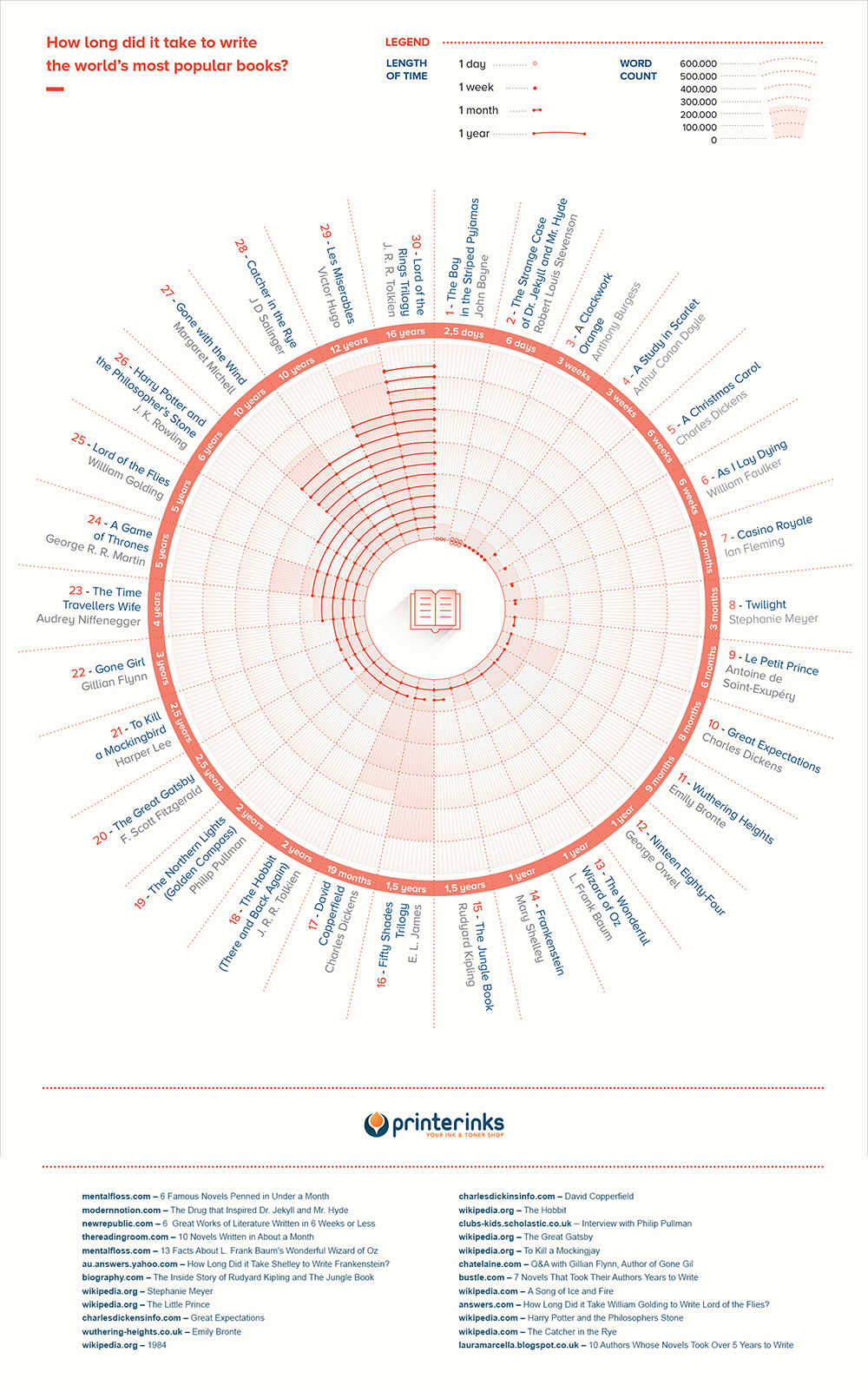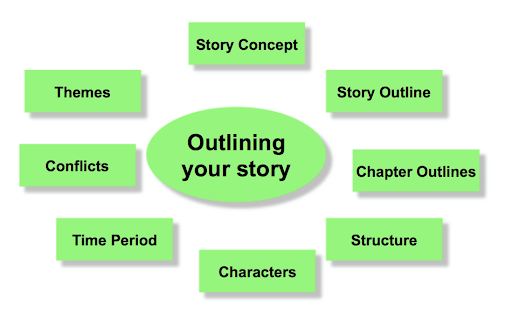Are you planning to write a book and wondering how long it might actually take? Are you currently writing a book and need to assess your timeline?
This article will help shed some light on the path to write a book.
Estimating the time required to write a book is rather subjective. The length, genre, writing method, and commitment a writer is willing to put in are all factors to consider. Many of the world’s most popular books were written over dramatically different timelines, ranging from 2.5 days to 16 years:
Are you a Plotter or a Pantser?
A plotter is a writer who spends a major chunk of their time outlining the structure of their book. This saves them some time in writing the second draft. For instance, in the context of novel writers, this includes crafting the premise, developing the characters, and constructing a timeline of the events. While outlining may take months, it can make the writing process fairly easier and quicker. The following image highlights the main elements of outlining:
John Grisham, a popular American novelist, states, “The more time I spend on the outline, the easier the book is to write. And if I cheat on the outline, I get in trouble with the book.” Using this strategy, Grisham has been able to pen 40 novels since the 1980s, with 300+ million copies sold and 28 consecutive best sellers.
A pantser, on the contrary, is a writer who lets the spark of their idea fly them in whichever direction it wishes to take them – as if to “fly by the seat of their pants” (hence, the name pantser). In other words, they don’t plan or make an outline of their book’s structure. Such writers are open to rewriting their drafts every time a new idea inspires them. A lot of rewriting means a greater investment of time. Some of the pantsers may enjoy writing at a slow pace because they like every writing session to feel inspiring and moving. Waiting for that inspiration to hit them might lead to writer’s block, and potentially a loss of narrative cohesion, resulting in a stretch of the writing duration.
Write a Book Faster: How Consistent Are You When You?
While different writing methods play an important role in determining how long it could take to write a book, an even more important factor is consistency. A pantser who dedicates an hour or so to their writing every single day is likely to take less time than a planner who plans and writes inconsistently. The allocation of time, and the dedication to write a set number of words every day, play a significant role in the quick and timely completion of a book.
John Grisham and Stephen King are two fiction authors who employ different writing techniques but are both very prolific. Grisham is a plotter, whereas King is a pantser. What makes both of them similar (and evidently, successful), is that both write, at least, 1,000 words for their respective books each day. With this consistency, King has been able to publish two books per year.
Do the Same Standards Apply to a Non-fiction Book?
Writing a non-fiction book is a completely different process than crafting a narrative, and the factors that can influence writing duration differ as well.
One main consideration is the technical complexity of the book. While small autobiographies may take an average of 3 months, research-extensive books can take up to 3 to 5 years. This is because qualitative methods, like scheduling interviews, depend entirely on the availability of the interviewees, which varies greatly. This data has to then be filtered and sorted under different chapter headings, which is a step that isn’t involved in fiction writing – making the determination of the time required to write a non-fiction book completely incomparable.
It is evident that there are no set criteria to determine how long it takes to write a book – and that the key is consistency and determination. If there are no research constraints, you should expect to write a minimum of 300 words and a maximum of 5,000 words per day (anything exceeding 1,000 words a day is a reasonable estimate). To start, you can use this range to set a daily goal for yourself, and then calculate the estimated total writing time of your book. For instance, if the planned length of your book is 100,000 words, you should expect to spend around 100 days writing it.
While the exact time depends on various factors, what matters most is for you to take the first step and start writing. Once you do, you’ll figure out the method that works best for you and helps you stay focused and keeps your timeline realistic – without compromising the quality of the script.










